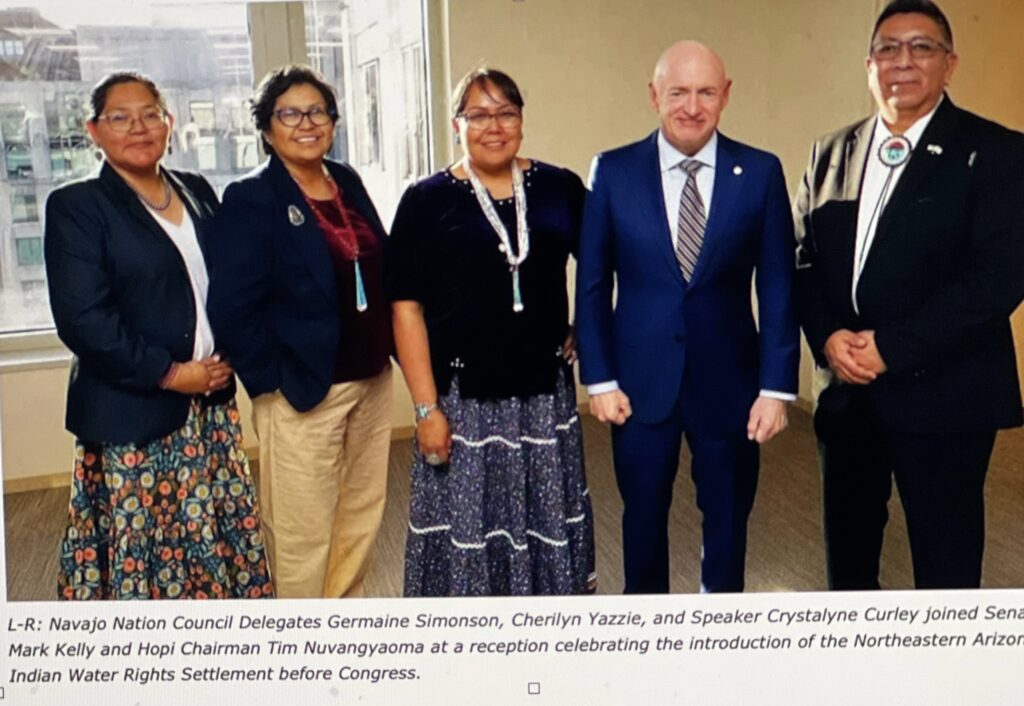Coming in April 11th issue: A natural way to color your Easter eggs.
Watershed Info No 1298
Daniel Salzler No. 1298
EnviroInsight.org Four Items March 21, 2025
—————Feel Free To Pass This Along To Others——————
If your watershed is doing something you would like others to know about, or you know
of something others can benefit from, let me know and I will place it in this Information .
If you want to be removed from the distribution list, please let me know.
Please note that all meetings listed are open.
Enhance your viewing by downloading the pdf file to view photos, etc.
The attached is all about improving life in the watershed through knowledge.
If you want to be removed from the distribution list,
please let me know. Please note that all meetings listed are open.
Check our website at EnviroInsight.org
- EPA Staff Directed To Seek DOGE Approval For Spending. March 11, 2025 WaterWorld Magazine
EPA mandates approval from DOGE for spending over $50,000, requiring daily explanations and additional forms. Senator Whitehouse expresses concern over potential delays and external influence.

The U.S. Environmental Protection Agency (EPA) has issued new guidance which requires spending items greater than $50,000 get approval from the Department of Government Efficiency (DOGE).
According to the Associated Press, EPA staff members have been directed to submit a one-page explanation of each funding action every day between 3 and 6 p.m. Eastern Time. Staff members must also complete all other relevant forms.
A letter to EPA Administrator Lee Zeldin, from Senate Committee on Environment and Public Works Ranking Member Sheldon Whitehouse, details concern about the role of DOGE in reviewing and approving funding decisions.
“This escalation of the role that DOGE plays in EPA funding decisions threatens to delay routine funding processes and hand complex financial decisions to unvetted individuals with no demonstrable expertise in environmental policy or fiscal management,” said Senator Whitehouse in his letter.Whitehouse stated that the new directive is troubling for three reasons:
- Agency actions, including contracting and grant-making now require unnecessary bureaucratic delays.
- The involvement of the DOGE team raises concerns about external influence on agency decision making.
- Requiring a certification that EPA funding decisions does not conflict with executive orders is illegal, according to Senator Whitehouse. Source: Water World magazine. March 2025
2. EPA Administrator, DOGE Cancel Over 400 Grants In Fourth Round Of Cuts. The U.S. Environmental Protection Agency (EPA), with the assistance of the Department of Government Efficiency (DOGE), focused on grant cancellations in early February 2025.
EPA press releases state that the cancelled grants were for DEI and environmental justice programs, however specific grants have not been detailed.
So far, the EPA has announced three rounds of cancellations totaling more than $116 million.
March 10, 2025

EPA Administrator, DOGE cancel more than 400 grants in fourth round of cuts.
The U.S. EPA, along with the Department of Government Efficiency, announced it has canceled more than 400 additional grants across nine programs.
As of March 11, 2025, it is unclear which specific grants have been cut. EPA press releases state that previous grant cuts related to DEI and Environmental justice.
An EPA press release states that total cuts have amounted to more than $2 billion.
March 4, 2025
EPA Administrator, DOGE cancel 21 additional grants in third round of cuts.
The U.S. Environmental Protection Agency (EPA) Administrator Lee Zeldin, with the assistance of the Department of Government Efficiency (DOGE), announced the cancellation of 21 grants totalling $116,449,761.
As of March 5, it is unclear which specific grants have been cut.
February 25, 2025
EPA Administrator, DOGE cancel 20 grants in second round of grant cancellations.
The U.S. Environmental Protection Agency (EPA) announced on February 25, 2025, that EPA Administrator Lee Zeldin, with the assistance of the Department of Government Efficiency (DOGE), identified and cancelled 20 grants totaling $60,958,537.30.
A March 4 EPA press release details that the grants cut were for DEI and environmental justice programs.
This marks the second round of EPA-DOGE partnered cancellations as the Administrator oversees a line-by-line review of spending.
The canceled grants come over a week after the EPA and DOGE cancelled nine contracts related to DEI, environmental justice and more, totaling $59,776,673.70.
An EPA press release states that the February 14 cancelled contracts were “wasteful DEI and environmental justice initiatives.”
Administrator Zeldin also announced on X on February 13 that he cancelled a $50 million environmental justice grant to the Climate Justice Alliance.
“The EPA, in partnership with DOGE, have wasted no time clawing back the waste and abuse of the previous administration,” said Administrator Zeldin in an EPA press release. “The American people elected President Trump with a mandate to restore accountability of government and ensure that dollars spent represent taxpayer interests. Today’s announcement of 20 cancelled grants and another $60,958,537.30 in immediate taxpayer savings reinforces our commitment to transparency.”
These actions reflect comments made during Administrator Zeldin’s nomination hearing. Source: Water World magazine. March 2025
3. Northeastern Arizona Indian Water Rights Settlement Introduced Before Congress
WASHINGTON, D.C. – Members of the 25th Navajo Nation Council joined Hopi Chairman Tim Nuvangyaoma, U.S. Senator Mark Kelly (D-AZ), and Congressman Eli Crane (R-AZ-02) for a reception at the Navajo Nation Washington Office to celebrate the introduction of the Northeastern Arizona Indian Water Rights Settlement before Congress.

In the Senate, the bill was introduced by Senators Kelly and Ruben Gallego (D-AZ). In the House, it was introduced by U.S. Representatives Juan Ciscomani (R-AZ), Greg Stanton (D-AZ), Eli Crane (R-AZ), Raúl Grijalva (D-AZ), David Schweikert (R-AZ), and Yassamin Ansari (D-AZ).
During the reception, Navajo Nation Council Speaker Crystalyne Curley emphasized the settlement’s role in securing prosperity for future generations of Diné, Hopi, and San Juan Southern Paiute.
“It’s an exciting day to see this settlement introduced,” said Speaker Curley. “It’s been a long time coming. People doubted that three tribes could unite. This dispute was imposed on us, but with something as vital as water at stake, we came together – not for ourselves, but for our children.”
Hopi Chairman Nuvangyaoma called the settlement’s introduction a historic moment. “I want to thank our Navajo and San Juan Southern Paiute relatives for setting aside differences, as we did as Hopi,” he said. “This settlement isn’t for us – it’s for the sustainability and survival of future generations. It must happen.”
The proposed settlement guarantees access to meaningful and reliable Upper Basin Colorado River Water, as well as Fourth Priority Lower Basin Colorado River Water – an allocation more secure than CAP Non-Indian Agricultural water. It also provides the flexibility to transport Arizona water from New Mexico and Utah into Arizona, a practice currently prohibited under the Law of the River. Additionally, it allows Upper Basin Colorado River Water to be used in the Nation’s Lower Basin communities and vice versa.
The settlement would also secure nearly $5 billion for water delivery infrastructure, ensuring long-term water access. The investments are critical for improving water management and reliability. It also provides an alternative source of clean drinking water for Arizona communities that currently depend almost entirely on groundwater.
“As you know, water is everything,” said Sen. Kelly. “Without it, we can’t grow crops or maintain a decent standard of living. We must build bipartisan support to make this happen.”
Representative Crane expressed his commitment to the settlement’s success. “We have a lot of work ahead, and I’m honored to help push this across the finish line,” he said.
Navajo Nation Council Delegates Cherilyn Yazzie, Carl R. Slater, Germaine Simonson, and Nathan Notah also attended the reception.
3. 2025 Clean Water Act Guidance on WOTUS Released
Posted on 3/17/2025 by Lion Technology Inc.
US EPA has announced plans to revise, again, its definition of Waters of the United States (WOTUS) under the Clean Water Act. The regulatory definition of WOTUS determines, in part, which bodies of water—e.g., streams, rivers, lakes, wetlands, etc.—are protected by Federal law/regulations.
The agency also provided new guidance on how the Clean Water Act will be enforced under this administration. Changes to the Waters of the US definition affect industry compliance with Federal water protection programs including:
- Oil Discharge Notifications (40 CFR 110);
- Spill Prevention, Control, and Countermeasure Plans (40 CFR 112);
- NPDES Permitting and Stormwater Discharge Permits (40 CFR 122);
- The “per-industry standards” (40 CFR 405-471); and
- Dredge and Fill Permitting (33 CFR 323).
Why Change the WOTUS Definition Under the CWA?
In the Clean Water Act, Congress authorizes US EPA to regulate all “navigable waters.” How regulators interpret the term “navigable waters” has been the central issue of legal challenges for decades, including in two landmark Supreme Court cases—Rapanos v. United States (2006) and Sackett v. EPA (2012). The resolution of both cases led EPA to revise the definition of WOTUS.
One specific, long-running challenge for EPA has been to provide definitive, clear direction about the status of wetlands that are somehow “connected to” protected waters.
Read more: Impact of Sackett v. EPA Decision on Clean Water Act Compliance at https://www.lion.com/lion-news/june-2023/clean-water-act-impact-of-sackett-v-epa-decision
4. 2025 WRRC Summer Arroyo Paid Internship: Now Due Monday, April 7 by 5pm Arizona Time. The WRRC is now accepting applications for its 2025 Summer Arroyo Internship, made possible by the generosity of Gene Sander and Louise Canfield-Sander. This internship offers a unique chance to contribute to the 2026 Arroyo, an annual publication summarizing key water issues for Arizona and the region.
- Internship Focus: Research and develop content for the 2026 Arroyo
- 2025 Conference Theme: Shared Borders, Shared Waters: Working Together in Times of Scarcity
- Application Deadline: Monday, April 7, 2025, at 5:00 PM (Arizona Time)
This is a great opportunity for U of A students interested in water policy and research. More details and application instructions can be found at the links below. Please share with students who may be interested. Apply today! Additional info can found at https://wrrc.arizona.edu/arroyo-internship
Copyright: 2025 EniroInsight.org
